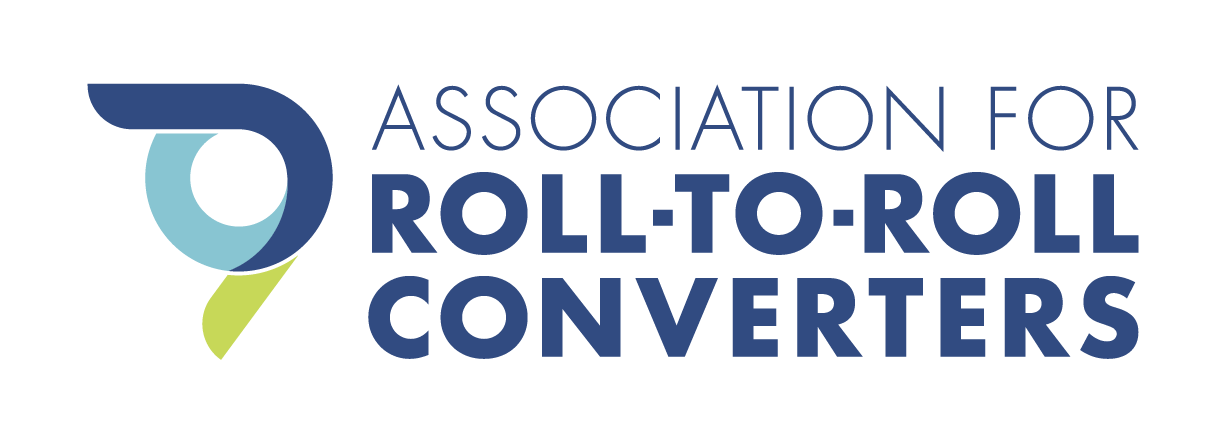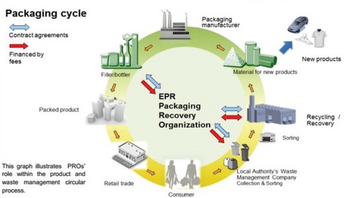slitting
Innovative Solutions For Flexible Packaging Paid Members Public
Presented by Daniela Cerfeda, Sei Laser We would like introduce a new range of laser systems designed for cutting, scoring and perforation of flexible packaging ables to perform on different materials such as single layer ( PE, PET, PP, nylon, PTFE ), laminated and paper. Our laser offer multiple innovative solutions inclung
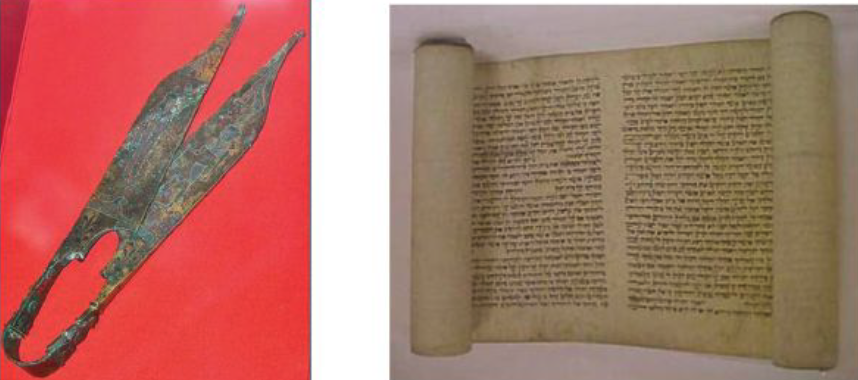
When Did Web Slitting Begin, and How Did It Initially Evolve? Paid Members Public
According to Wikipedia, the first writing papers were developed around the 4th century BCE in Egypt. At that time, a more efficient alternative to wet clay-tablet scoring was needed to record mercantile transactions, along with the strong desire to create large quantities of religious documentation.
What key slitting factors impact the handling of adhesive webs? Paid Members Public
When it comes to Adhesive Web Slitting, there are two different worlds … Science and Manufacturing (see Figure 1). Science deals with creating the many, many different adhesives to be applied to the very large variety of manufactured, flexible-web materials. The two main adhesive-web application types that the converting industry deals
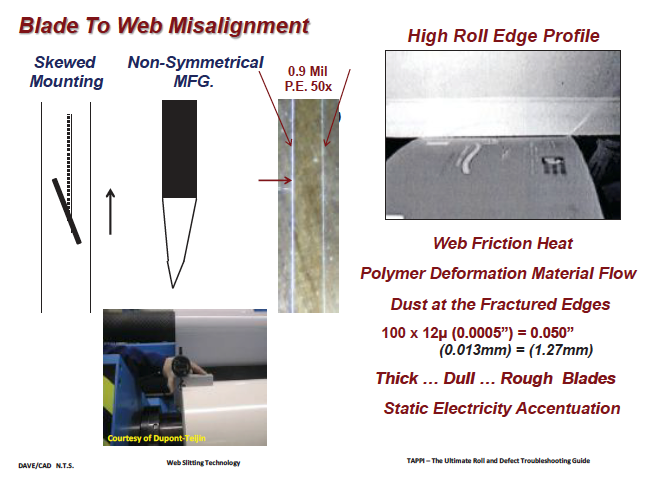
The basics of web trim slitting Paid Members Public
Why do we trim slit webs? To paraphrase the late Professor Erwin Cory, “That is a two-part question. Why? is a question that has plagued mankind since time immemorial.” Secondly, do we trim slit webs? That answer is yes. One of the reasons we trim slit is to remove baggy
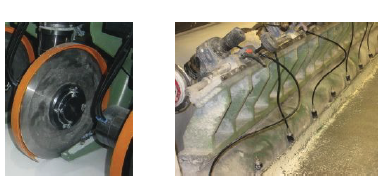
CUT POINTS | How do we best quantify and remove slitting dust? Paid Members Public
Web slitting is never a “dustless” operation, no matter the method employed. Some important questions relating to slitting dust include: How much is too much, what finished roll issues can be experienced, and how might we control it? Figure 1 just might show too much. Click the link below to
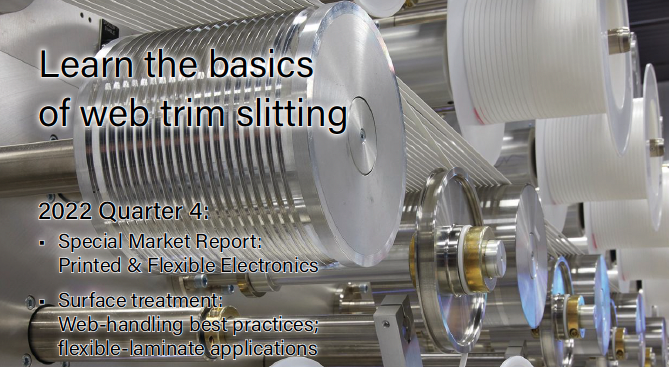
Converting Quarterly | Q4 2002 Paid Members Public
Click the link below to download the full article.
CUT POINTS | What problems may be solved via electronic shear knifeholders? Paid Members Public
My thoughts evolved to more of the web-slitting process. With the advent of computer-controlled, servomotor-powered knifeholders and linear-rail, automatic positioning systems, one might wonder what other process monitoring and/or controls could help maintain “in-spec” roll production.
